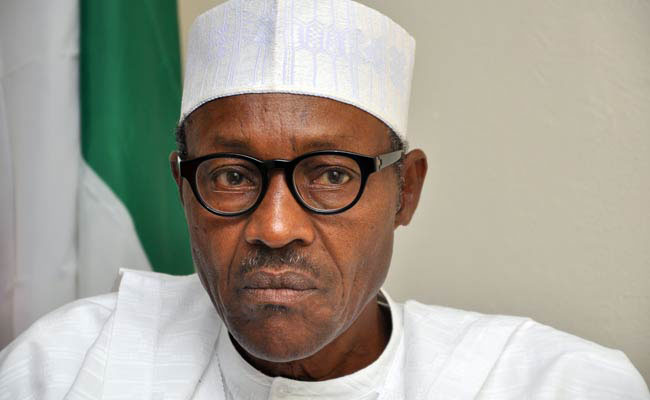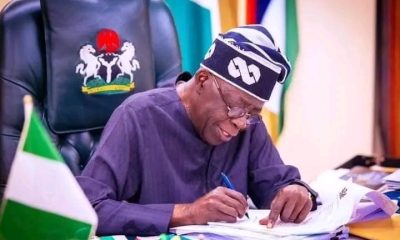Opinion
Hikes: Nigerians are Groaning under APC

By Jide Afolabi
None of Nigerian much worshipped clerics saw it coming. The aura that ended the year 2019 ushered us into the new decade. Nigerians were hopeful. They were eager to see the new decade. The believe was that the last decade was characterised by political turmoil which heralded the new All Progressives Congress (APC) as the party in power, dislodging the lackluster Peoples Democratic Party (PDP) from Aso Rock and some state government houses.
The first half of the last decade was equally characterized by corruption, ineptitude and bad governance. The second half of the decade saw an improved version of the first half in all areas albeit a self-righteous figure as the leader of the nation. As a result of what many believed was orchestrated by corruption, dwindled fortune in the crude oil market and bad policies, Nigeria went into recession. Of course, we came out, perhaps, in record time but things never went back to normal.
With the appreciable increase in the Real Gross Domestic Product (GDP) in 2019 to the tune of 2.9, the hope was that the new decade that 2020 heralded would be better. Boom! Chinese Virus popularly called COVID-19 appeared. The source? China! It was Wuhan Province in China that it was first discovered in December 2019. Nobody knew it would bring the world to its knees.
Yet, by January 2020, everything was still normal. At that time, it was still China problem. Alas, an Italian expatriate imported the novel disease to the country in March 2020. Since then, business activities have been disrupted due to a lot of safety measures put up by the government. This included total lockdown of the country for about two months which significantly affected businesses especially, the small and medium scale enterprises.
As a result of the pandemic, various government’s across the globe provided palliatives for their citizens. Of course, Nigerian government also claimed to have provided palliatives for “poorest of the poor” even when the staff of the oil rich Niger Delta Development Commission (NDDC) were busy sharing Nigerian money to themselves in the name of palliatives. It was this same period that the Minister of Humanitarian Affairs, Disaster Management and Social Development, Hajia SadiyaUmar-Farouk claimed to have spent over half a billion naira to feed pupils at home during the lockdown.
In the midst of this economic loss to households, the government increased the Value Added Tax (VAT) from 5 per cent to 7.5 per cent. During the same period, Buhari government imposed the stamp duty on almost every financial transaction where all parties to such transaction pay. While Nigerians are groaning under the harsh effect of the COVID-19 pandemic, the government again, announced increase by 200 per cent in electricity tariffs from 22 Naira per kwh to 66 Naira. This took effect on September 1, 2020.
Like a cursed nation, the government again increased the pump price in same September. It rose from an average of 142 Naira to 160 Naira per litre. Whereas, government has maintained that it would further go up because of the full deregulation of the downstream sector of the petroleum industry. The reason advanced over the years was that government needs more money to finance infrastructure. However, the economic outlook for the country does not support these irrational hikes.
Increase in pump price is not new to Nigerians. In fact, almost all Nigerian Presidents including the 88-day interim government of Ernest Shonekan who increased the pump price by 164 per cent – highest in our history – have increased the pump price. Only the short-lived, three year government of President Umar Musa Yar’Adua reduced the pump price by 13.3 per cent. Every other government from Yakubu Gowon to the current Muhammadu Buhari increased the pump price.
“Occupy Nigeria” protest ravaged the nation from West to the North, and East to the South when President Goodluck Jonathan increased the pump price by 33.8 per cent in January 2012. That protest by Nigerians led to loss of electoral value of the former President and eventual loss at the poll in 2015.
In less than a year in office in 2016, President Muhammadu Buhari government announced a new pump price with increase from 97 Naira to 143 Naira per litre.
There was protest albeit, ineffectual, as many Nigerians still believed that it was done in the nation’s interest and gave the government a benefit of doubt.
However, the Buhari government has failed in its promise of ensuring that the refineries are fixed. Is it not a contradiction that a nation that produces crude oil in large quantity, highest exporter in Africa is equally the highest importer of the refined products in Africa?
According to the African Development Bank, Nigerias Real GDP growth was estimated at 2.3% in 2019, marginally higher than 1.9% in 2018. There was growth in transportation, information and communications technology, and an improved oil sector. Household consumption contributed 1.1% to real GDP growth. Government’s effort to lower inflation to the 69% range faced structural and macroeconomic constraints, including rising food prices and arrears payments, resulting in a rate estimated at 11.3% for 2019.
However, the nation continues to wallow in debts and poverty. Fiscal revenues below 7% of GDP and increased public spending widened the deficit, financed mainly by borrowing. At the end of June 2019, total public debt was $83.9 billion – 14.6% higher than 2018. That debt represented 20.1% of GDP, up from 17.5% in 2018. Domestic public debt amounted to $56.7 billion and external public debt $27.2 billion. The poverty rate is still high with over half Nigerias 36 states above the national average of 69%. High poverty reflects rising unemployment, estimated at 23.1% in 2018, up from 14.2% in 2016. Nigeria real GDP growth was projected to rise to 2.9% in 2020 and 3.3% in 2021. This was premised on the growth witnessed in 2019 and the projected increase in the Value Added Tax from 5% to 7.5% which took effect on March 1, 2020.
One of the little benefits that touches every Nigerian – rich or poor, young or old is subsidy on products. This is not peculiar to Nigeria. In actual fact, the 50 states that make up America collectively spend 10b USD annually to subsidise fuel consumption of their citizens.
An American magazine, TIME in its January 3, 2012 edition story titled “Petrol Politics: Why Nigerians are Enraged Over the Rising Price of Gasoline” said “One of the fastest ways to alienate voters is to be seen supporting anything that intensifies pain in the pump.” It stated further, “politicians’ refusal to increase gas taxes in line with inflation and construction costs starves needed infrastructure of funding”. How has this familiar “infrastructural development” justified further taxes and hike in essentials like petroleum and electricity tariffs on already frustrated Nigerians? Why should Nigerians continue to subsidise the overfed governments, politicians and their cronies?
A state that has the interest of its citizens at heart would not resort to burdening its people with tariff increase and high taxes. A state like Iowa in US has not added a dime to its tax in the last 22 years.
Today, inflation rate is at staggering 12.82 per cent according to the Consumer Price Index (CPI) report released by the National Bureau of Statistics (NBS). This is the highest rate recorded in 27 months. It is expected that government would at this critical time be considerate and look for more reasonable ways to ease the pains on Nigerians rather than aggravating it.
Yes, government needs more funds for infrastructural development. However, it is expected that it would find alternative source of generating fund in lieu of burdening the citizens that are already groaning under the unfavourable economic policies.
For instance, since the government has been spending billions of USD on Turn Around Maintenances on our moribund refineries, how many litres of petroleum have they refined? Are expenses like overhead costs, training, travelling, consultancy services, inconvenience allowances etc not incurred? Why should we annually be declaring loss on moribund facilities? Also, the overhead costs in the Nigerian National Petroleum Corporation (NNPC) and its subsidiaries – Nigerian Petroleum Development Company (NPDC), The Nigerian Gas Company (NGC), The Products and Pipelines Marketing Company (PPMC), Integrated Data Services Limited (IDSL), National Engineering and Technical Company Limited (NETCO), Hydrocarbon Services Nigeria Limited (HYSON), Warri Refinery and Petrochemical Co. Limited (WRPC), Kaduna Refinery and Petrochemical Co. Limited (KRPC), Port Harcourt Refining Co. Limited (PHRC), NNPC Retail, and Duke Oil have become drainpipe on the economy.
As a result of lack of fiscal governance, seven subsidiaries of the NNPC namely Corporate Head Quarters (CHQ), Port Harcourt Refining Company (PHRC), Warri Refining Petrochemical Company (WRPC), Kaduna Refining Petrochemical Company (KRPC), Shipping and Nigeria Pipeline Storage Company Limited (NPSC) cumulatively lost 275 billion naira between January and December 2019. What economic value is it that we produce crude; highest exporter and yet we cannot refine?
Also, Nigerians have not seen any appreciable effort by the government at all levels to reduce wastages. It is an indisputable fact that our democracy is the most expensive in the world. If government wants to save money, it has to cut costs first and such sacrifice like reduction in salary and allowances of political office holders would show that the government is serious.
Since we still depend largely on oil as a mono-economic state, the government must think outside the box in the area of building modular refineries. This would be cost effective, easy to manage, closer to depots and save our collapsing roads. We cannot perpetually depend on aged and unserviceable refineries to produce products even for our local use and expect a different result. Furthermore, we need to take the advantage of alternative means of generating power beyond the hydro that that nation largely depends on.
Nigeria is at crossroad and every Nigerian must stand up to be counted especially, the labour centre – Nigeria Labour Congress (NLC), Trade Union Congress of Nigeria (TUC) and Federal of Informal Workers; Civil Society Organisations and all Nigerians must quickly organize and demand immediate reversal of these hikes.
Jide Afolabi is a development expert and social commentator. He writes from Jos.
-

 News4 days ago
News4 days agoCapacity Building: OHIS Organizes Retreat For New Board Members
-

 News3 days ago
News3 days agoFamily Of Gruesomely Murdered Pastor Cries For Justice
-

 News2 days ago
News2 days agoJust In: Nigerian Governor Dethrones 15 Traditional Rulers, Reinstates 7
-

 News2 days ago
News2 days agoTinubu Appoints Consuls-General, Chargè D’ Affairs For 13 Countries



